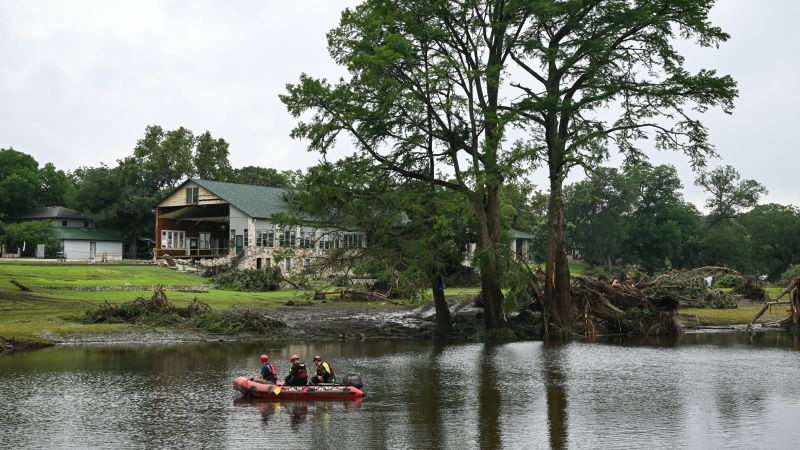Tragedies like natural disasters, plane crashes, and fires have a profound psychological impact, especially on families. Parents find themselves compelled to think about the safety of their children in the wake of such news, and naturally, children mirror these anxieties. Recent events, notably the flash flooding that devastated central Texas and resulted in the deaths of over 100 individuals, including campers and counselors at Camp Mystic, spotlight this phenomenon. Camp Mystic, a beloved summer destination for many children, now sits as a stark reminder of the frailties of safety and security that parents often take for granted when sending their children off to camp.
The anxiety surrounding children’s safety during such events amplifies due to the nature of summer camps, where children venture away from home and familial comforts. Dr. Gail Saltz, a clinical associate professor of psychiatry, encourages families to embrace camp experiences, despite the heightened fears that might accompany traumatic news. She argues that withdrawing from activities fueled by anxiety only serves to deepen those feelings of apprehension and fear. Camp is designed to be a rite of passage for many children, providing them with enriching experiences and memories that can shape their development.
Fear, while a natural response to tragic events, can morph into irrational fears, restricting children’s formative experiences. The context surrounding the calamity at Camp Mystic elicits a particularly strong emotional response from parents and children alike. The idea of a cherished place turning tragic invokes a sense of helplessness. As families grapple with their emotions, it is crucial for both parents and children to remain grounded, acknowledging their feelings while resisting the urge to completely avoid life’s uncertainties.
Dr. Saltz points out that the sense of control many parents feel is significantly diminished when their children are away at camp, triggering separation anxiety for both parties. Furthermore, watching unfolding disasters can sometimes evoke “irrational, catastrophic fears” and an unsettling feeling of helplessness, particularly when families feel the sting of vulnerability during the drop-off phase at camps. Despite the horrendous nature of the flooding event, it is essential to remember that such incidents are exceedingly rare; they can be shocking and distressing, but they shouldn’t define the overall experience of camping.
Understanding the context of these tragedies is essential. Extreme weather conditions exacerbated by climate change contributed to the catastrophic flooding in Texas. This pattern of heightened exposure to extreme environmental events engenders feelings of helplessness among parents, mirroring sentiments often linked with other societal issues like gun violence. As stressed by Bob Ditter, a clinical social worker, Camp Mystic symbolizes a sanctuary, embodying safety and community spirit for nearly a century.
Moreover, Dr. Leslie Paris discusses the historical perception of camps as safe havens. Children at these camps often explore their identities away from their families, which has become a foundational element of American childhood. While it is true that camps have never been devoid of risks, including but not limited to drownings or illness, such incidents have not historically deterred families from enrolling their children.
Parents should acknowledge their fears associated with sending children to camp but also should promote rational approaches to these worries. Taking proactive measures, such as inquiring about a camp’s safety protocols and communication plans, can provide reassurance. Nonetheless, they must also communicate to their children that uncertainty is an inherent part of life—a valuable lesson in resilience. Thus, it becomes essential for parents to model a healthy relationship with risk and anxiety for their children.
For anxious children, Dr. Saltz suggests it may be beneficial to shield them from distressing news, ensuring that their camp experience remains untainted by unrelated tragedies elsewhere. While it is inevitable that news will reach them, emphasizing the rarity of such events can help normalize conversations about fears, offering children the opportunity to express their concerns openly.
In conclusion, while tragic events can cloud the experience of summer camps with anxiety, both parents and children stand to gain from facing the inherent uncertainties of life. Parents should encourage their children to experience camp, knowing that the necessary skills for navigating anxiety and fear can develop effectively when one steps outside conventional comfort zones.












